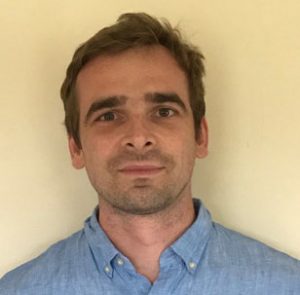
Dr. Diane Gilbert-Diamond
Dr. Gilbert-Diamond's research is focused on identifying genetic and environmental factors related to chronic diseases such as obesity, type II diabetes, and cancer. In addition to studying independent predictors with established statistical methods, she also applies novel bioinformatical methods to look for gene-gene and gene-environment interactions related to disease outcomes.

Dr. Jennifer Emond
Dr. Jennifer Emond’s research is focused dietary behaviors and dietary intake during early childhood; the preschool years are a formative stage when children develop dietary behaviors and preferences that may ultimately shape their lifetime risk of obesity. Her research includes experimental studies examining the impact of food marketing exposure, including exposure to child-directed TV advertising and promotional tie-ins, on preschool-age children’s dietary intake, and observational studies (cross-sectional and prospective) to examine how food marketing impacts children’s dietary intake and eating behaviors. She also examines how the family dynamic impacts children’s health behaviors and ultimately their obesity risk. Jenn is the recipient of a K01 mentored research scientist award (NIDDK) to examine how household chaos impacts media use, sleep and hedonic eating behaviors in preschool-age children. A unifying analytical theme across her research is the design, management and analysis of intensively-collected, repeated-measures longitudinal data at the individual level. Additionally, she is dedicated to the training of students in research methodology at the undergraduate and graduate level.

Dr. John Brand
PhD in Experimental and Applied Psychology, Concordia University
My research studies the interface between the attention system of the human brain and childhood and adolescent health. I am particularly interested in the use of cognitive paradigms to isolate and understand the role that attention may play in public health issues, such as childhood obesity and youth tobacco use. During my PhD, I trained in theoretical cognitive psychology and the development of cognitive paradigms of attention including eye-tracking methodology. I am currently working under the supervision of Dr. Diane Gilbert-Diamond to create eye-tracking protocols to investigate the role of attention and media multi-tasking on food cue reactivity in children, an important predictor of childhood obesity. Additionally, Dr. Gilbert-Diamond and I are working with Dr. James Sargent to use eye-tracking methodology to investigate the association between exposure to electronic-cigarette ads and adolescent smoking initiation, an association that may have important policy implications for the FDA.

Dr. Jennifer Meijer
PhD, Dietitian, Identifying how Nutrition can Impact Food Cue Reactivity
Dr. Meijer's research uses metabolomics to identify risk of metabolic disease, such as type 2 diabetes, in children and adolescents. Using nutrient challenges such as oral glucose tolerance test and high-fat mixed macronutrient tolerance test, Dr. LaBarre profiles the response of the metabolome to identify characteristics influencing the ability to adapt to a nutrient load. Additionally, she works as a Registered Dietitian in the Weight and Wellness Center at Dartmouth Hitchcock Medical Center, presenting the opportunity to translate research into the clinic.

Zhuoya Zhang
PhD Student
Zhuoya received her MPH from Brown University and BA in Public Health and Economics from Brandeis University. For her master’s thesis, she researched how adolescents’ eating behaviors are related to their risk for cardiometabolic disease. She is curious about how lifestyle factors (e.g., sleep, diet, and mindfulness) impact children’s health. Outside of the lab, she enjoys running and exploring bookstores.

Tim Renier
MD/PhD Student
Tim received his BS in Chemistry from St. Olaf College. He is currently enrolled in the combined MD/PhD program at the Geisel Medical School. Broadly, his research interests lie in using epidemiological and bioinformatics approaches to study the causes, prevention, and treatment of chronic diseases. He is particularly interested in obesity medicine, and it is the topic area of his research so far at Dartmouth. In his spare time he enjoys hiking, DIY projects, cooking (especially barbecue), cross country skiing, golf, and travel.

Caroline Borowy
Research Assistant
Caroline received her BS in Biology from the University of British Columbia and more recently an MS in Health Education & Promotion from Maastricht University in the Netherlands. For her master's thesis, she researched sedentary behaviors of university students in relation to their respective time in campus environments. Caroline grew up in the Upper Valley and has previously worked in the community as a personal trainer. Outside of academia she enjoys hiking, traveling, sewing, preparing new recipes and spending time with her dog.
Elizabeth Shelto
Research Assistant
Elizabeth received her Bachelor's degree in Neuroscience from Wheaton College, MA. She has prior research experience in Wheaton's Visual Perception Lab, where she studied the ability to overcome visual suppression during saccadic eye movements. In her free time, Elizabeth enjoys board games, hiking, writing, and digital fabrication.